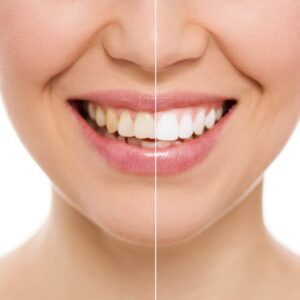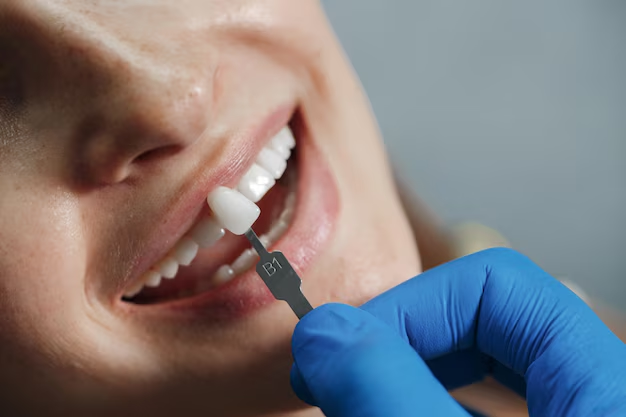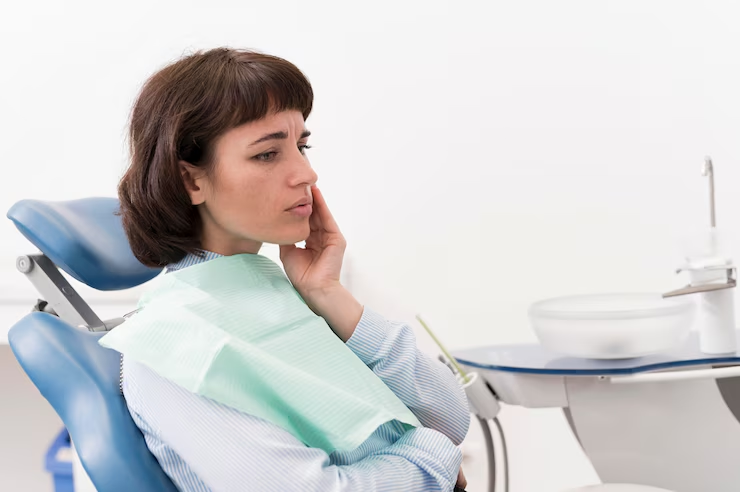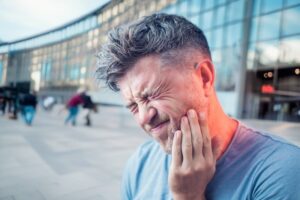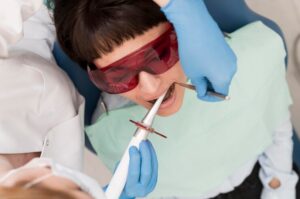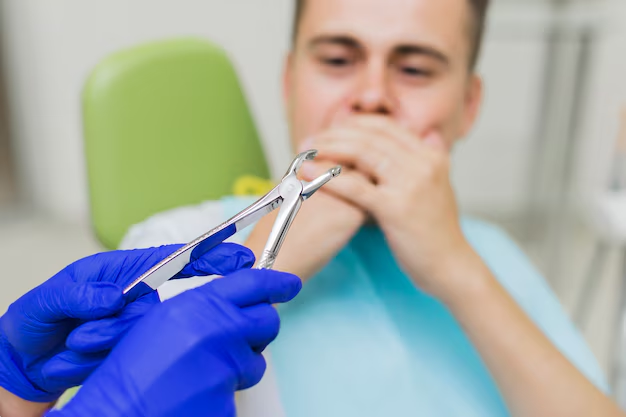
Dental emergencies can happen when you least expect them—whether it’s a sudden toothache, a broken tooth from a fall, or even a knocked-out tooth during a sports game. At Fab Dental Hayward, we understand how distressing these situations can be. Knowing how to respond during a dental emergency can make all the difference in preserving your smile and preventing further damage.
Here’s a guide on what to do in common dental emergency, ensuring that you take the right steps while waiting for professional dental care.
1. Toothache: Relief for Your Pain
Toothaches can vary in severity, but one thing’s for sure—they’re never fun. The pain may be caused by a cavity, an infection, or gum disease, and it’s important to address it quickly.
What to do:
- Rinse your mouth with warm water to clean it and remove any debris.
- Use dental floss to gently remove any food particles stuck between your teeth.
- Apply a cold compress to the outside of your cheek to reduce swelling.
- Take over-the-counter pain relievers (such as ibuprofen) as directed, but avoid placing aspirin directly on the painful tooth or gums.
- Contact your dentist to schedule an appointment. If the pain is severe or accompanied by swelling, it may indicate an infection that needs immediate attention.
2. Knocked-Out Tooth: Save Your Tooth, Save Your Smile
Accidents happen, and a knocked-out tooth can be one of the most alarming dental emergency. However, if handled correctly and quickly, there’s a good chance your tooth can be saved.
What to do:
- Handle the tooth carefully by the crown (top part), not the root.
- Rinse it gently with water to clean it, but don’t scrub or remove any tissue attached to it.
- Try to place the tooth back into its socket immediately. If this isn’t possible, place it in a cup of milk or saliva to keep it moist. Never store the tooth in water.
- Get to your dentist immediately. The sooner you see a dentist, the higher the chances of reimplanting the tooth successfully.
3. Broken or Chipped Tooth: Time to See the Dentist
A broken or chipped tooth can occur from a fall, a sports injury, or even biting down on something hard. While it may not cause immediate pain, a broken tooth can lead to further damage if left untreated.
What to do:
- Save any pieces of the broken tooth and rinse your mouth with warm water.
- Apply a cold compress to reduce swelling and relieve pain.
- Use dental wax or temporary dental cement to cover the jagged edges of the broken tooth until you see your dentist.
- Call your dentist as soon as possible. Depending on the severity, they may recommend a dental crown, veneer, or even a root canal if the damage is extensive.
4. Lost Filling or Crown: Protect Your Tooth
If you lose a dental filling or crown, your tooth may become sensitive and prone to damage. It’s important to act fast to avoid further issues.
What to do:
- Save the filling or crown if possible.
- Temporary fixes: If the filling has fallen out, you can temporarily fill the cavity with sugar-free gum or dental wax. For a lost crown, you can try securing it back in place with dental cement or over-the-counter temporary crown adhesive.
- Call your dentist as soon as possible to have it replaced or repaired.
5. Abscess: Don’t Ignore an Infection
A dental abscess is an infection that can form around the root of a tooth or in the gums. This is a serious condition that can lead to severe pain and even spread to other areas of the body.
What to do:
- Rinse your mouth with warm salt water to help reduce the pain and draw out some of the infection.
- Apply a cold compress to the outside of your cheek to alleviate swelling.
- Avoid squeezing or popping the abscess, as this can spread the infection.
- Seek immediate dental care. An abscess requires professional treatment, which may include drainage, antibiotics, or a root canal.
6. Soft Tissue Injury: Stop the Bleeding
Injuries to the gums, lips, tongue, or inner cheeks can happen during accidents or falls. These injuries may bleed, but they can usually be treated at home until you can see a dentist.
What to do:
- Clean the wound gently with warm water.
- Apply pressure with a clean cloth or gauze to stop the bleeding.
- If the bleeding doesn’t stop within 15 minutes, or if the injury is severe, head to the emergency room or call your dentist immediately.
7. Broken Braces or Wires: Don’t Let Your Orthodontic Treatment Derail
Braces and orthodontic devices can sometimes break, especially if you eat hard or sticky foods. If you experience discomfort due to broken braces or wires, it’s important to address the issue immediately.
What to do:
- Try to reposition the wire using a pencil eraser or cotton swab, if it’s poking the inside of your mouth.
- Cover the broken wire with orthodontic wax or a cotton ball to reduce irritation.
- Visit your orthodontist as soon as possible for repairs.
When to Seek Emergency Dental Care
It’s always best to seek professional care when in doubt. If you experience any of the following, you should seek emergency dental care:
- Severe tooth pain that doesn’t go away
- A knocked-out tooth
- A broken or cracked tooth that’s causing discomfort
- A large or infected abscess
- Excessive bleeding from the mouth that doesn’t stop
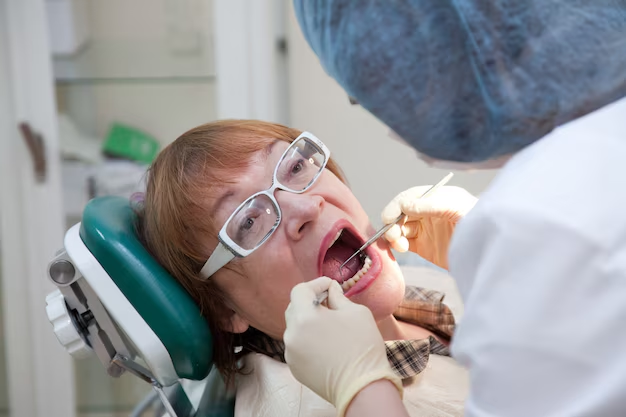
“Dental emergencies are never expected, but knowing what to do can make a huge difference. Our team at Fab Dental Hayward is always here to help you with prompt, professional care when you need it most.”
– Dr. Alag, DDS, FAGD, Fab Dental Hayward
Frequently Asked Questions (FAQs)
What should I do if I have a dental emergency outside of office hours?
If your dental emergency occurs outside normal office hours, you should contact your dentist’s office directly. Many offices have emergency lines, or they can refer you to an emergency dental service. If the situation is severe, such as a knocked-out tooth or uncontrollable bleeding, visit the emergency room immediately.
How can I prevent dental emergencies?
While some accidents are unavoidable, you can reduce the risk of dental emergencies by wearing a mouthguard while playing sports, avoiding chewing on hard objects, maintaining good oral hygiene, and attending regular dental check-ups.
Can I go to the emergency room for a dental emergency?
While emergency rooms can address severe pain and injuries, they are not equipped to provide comprehensive dental care. It’s always best to see a dentist who can provide the proper treatment for dental emergencies.
Will dental insurance cover emergency procedures?
Most dental insurance plans cover emergency procedures, but the specifics depend on your plan. It’s a good idea to check with your provider before seeking treatment to understand your coverage.
Conclusion
Dental emergencies are stressful, but knowing how to act quickly and effectively can prevent further complications and help save your teeth. Whether you’re dealing with a toothache, a knocked-out tooth, or an abscess, Fab Dental Hayward is here to provide fast, expert care when you need it the most.
“Your smile is important, and we’re here to protect it. Don’t hesitate to reach out if you experience a dental emergency—we’ll guide you through the process and help you feel better as quickly as possible.”
– Dr. Alag, DDS, FAGD, Fab Dental Hayward

